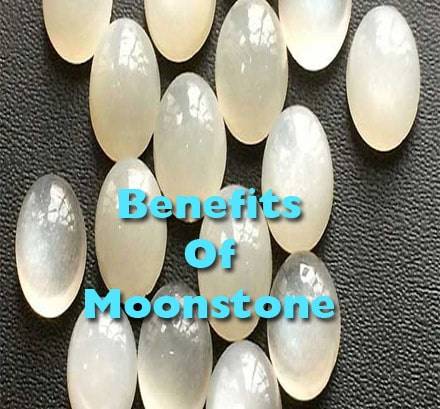There are two types of safflower oil available on the market: monounsaturated and polyunsaturated. While the monounsaturated version is not necessarily healthier than the polyunsaturated version, it has a longer shelf life.
According to research, safflower oil may provide health benefits, notably for blood sugar, cholesterol, and skin inflammation.
According to some research, it may have some health benefits when used in the diet and skin.
With its high smoke point and neutral flavor, Safflower oil may be a healthier alternative to olive oil for cooking at high heat.
We’ve compiled a list of this article’s top safflower oil health benefits. Additionally, we address the weight loss effects of safflower oil.
Table of Contents
Safflower Oil: What Is It?
Safflower oil is extracted from the safflower plant’s seeds. While safflower oil is more expensive than other cooking oils, it may be healthier. However, what are this oil’s specific health benefits, and how does it vary from other oils?
Safflowers are useful for a variety of things. Originally, they were cultivated for their yellow and red blossoms, producing dyes. The plant is grown chiefly for its oil, although it also makes meal and birdseed.

Safflower oil contains over 75% linoleic acid, which may lower blood cholesterol and improve heart and vascular health. Safflowers have significantly more linoleic acid than other oils, including:
- Cottonseed
- Soybean
- Peanut
- Olive
- Corn
Safflower oil is used mainly in margarine and salad dressings since it is high in linoleic acid. Other safflower cultivars generate oil with high oleic acid content. This safflower oil is more suitable for cooking due to its higher heat stability.
Which type of cooking oil is the healthiest for my family and me? We are frequently perplexed and concerned about selecting an oil for daily kitchen use.
It is a widely held belief that oils are harmful to health, that they raise blood cholesterol levels, and that they make us fat. However, how much do we truly know about the numerous oils on the market, their benefits, and drawbacks? Safflower oil is a type of vegetable oil with many health benefits.
Safflower Oil’s Applications
- Because safflower oil is chemical-free, it is a healthier product to use as a hair conditioner to restore your hair’s shine and luster.
- It is used industrially as a dye or coloring agent in paints and varnishes.
- You can substitute safflower oil for linseed oil in your oil paintings.
- Safflower oil is an extensively used cooking oil.
- Dried safflower is a common spice.
Safflower oil has numerous health benefits.
Apart from the uses above, it is brimming with several health benefits. Safflower oil may provide several health benefits, including those listed below. Here, we’ll examine the data for 14 of safflower oil’s most important benefits:
Safe for use in high-temperature cooking
Certain oils should not be used for frying because excessive heat can form free radicals.
Safflower oil with a high oleic content is safe to cook with at high temperatures. Indeed, this monounsaturated oil burns at a higher temperature than a variety of other oils, including:
- sesame oil
- canola oil
- corn oil
- olive oil
Additionally, safflower oil has a milder flavor than other oils such as olive and coconut, making it an excellent choice for deep-frying, pan-frying, or baking.
However, people should avoid heating polyunsaturated safflower oil. Please keep it on hand for drizzling over steamed vegetables and vinaigrettes. Refrigerate the oil to keep it from going rancid.
1.A nutrient-dense source of fatty acids
The safflower plant is used to extract safflower oil.
Safflower oil contains a high concentration of unsaturated fatty acids, particularly monounsaturated and polyunsaturated fats.
These fats are required for the body to function. Unsaturated fatty acids are typically considered healthier than saturated fats by experts.
Dietary fats, such as those in safflower oil, are critical for hormone regulation and memory. They are necessary for the body’s absorption of fat-soluble vitamins A, D, E, and K. Eating some fat with meals may also help feel more satisfied.
Saturated fats are frequently referred to as “bad” fats than olive oil, avocado oil, and sunflower oil.
A diet high in “good” fats and low in “bad” fats provides numerous health benefits, including decreased inflammation and improved heart health.
Safflower oil is classified as either high oleic or high linoleic. Both are a source of unsaturated fatty acids.
As with olive oil, safflower oil with a high oleic content contains monounsaturated fats and is suitable for cooking at high temperatures.
Safflower oil with a high linoleic acid content contains a higher proportion of polyunsaturated fats and cannot be heated but is ideal for salad dressings.
2.Prevents the onset of atherosclerosis
Safflower oil is widely known for its anti-inflammatory properties and ability to prevent blood vessel hardening, preventing atherosclerosis. Additionally, the linoleic acid in safflower oil helps prevent artery stiffening. Polyunsaturated fatty acids reduce the likelihood of fatty plaques forming in the blood vessels and contribute to heart health.
3.Helps with Obesity Prevention
According to one study, consuming 8 grams of safflower oil daily aids in the reduction of abdominal fat. Safflower oil is advised as it enhances the body’s serotonin levels. In ordinary vernacular, serotonin is referred to as the ‘happy hormone,’ and safflower oil boosts the production of serotonin upon ingestion. You can finally lose weight without experiencing depression! Safflower oil is dense in omega-6 fatty acids, which aid in fat burning and help prevent obesity when appropriately used in cooking.
4.Cholesterol levels are lowered.
Safflower oil is dense in unsaturated fatty acids, particularly omega-6 fatty acids, which help decrease body cholesterol levels. Additionally, safflower oil includes linoleic acid, which aids in the reduction of low-density lipoprotein (LDL) cholesterol. LDL cholesterol is the critical risk factor for cardiovascular disease. Safflower oil is a popular choice among hypercholesterolemia (i.e., high cholesterol levels).
Safflower Oil reduces cholesterol and improves cardiovascular health. How?
Additionally, the 2011 study shows that individuals’ blood cholesterol levels improved after four months of safflower oil consumption.
These findings corroborate the American Heart Association’s Source that unsaturated fats may help reduce low-density lipoprotein (LDL) or “bad” cholesterol levels in the blood. In addition, a high cholesterol level is associated with an increased risk of heart disease.
Additionally, safflower oil may benefit the heart in additional ways.
Safflower oil’s unsaturated fats help thin the blood and make platelets less sticky. This may help prevent blood clots from forming, resulting in a heart attack or stroke. Safflower oil may also have a calming effect on the blood vessels, lowering blood pressure.
5.Menstrual dysphoria (PMS)
With a high linoleic acid content, cold-pressed safflower oil can help control prostaglandins in the body. Prostaglandin regulation will keep an eye on all hormones, preventing symptoms such as abdominal pain and cramps that occur before or during menstrual cycles.
6.Coronary artery disease
Safflower petals were thought to improve blood circulation in the early middle ages, and modern research has demonstrated the benefits of safflower oil in reducing heart attacks.
7.Anti-inflammatory
Additionally, safflower oil may include anti-inflammatory effects.
According to a study published in Clinical Nutrition, safflower oil and its unsaturated fatty acids reduced inflammation indicators. This may be beneficial in treating various illnesses, including diabetes and heart disease.
Safflower oil includes a rich concentration of omega 6 fatty acids and vitamin E. As a result of this combination, it is a highly effective anti-inflammatory agent.
8.Itching / Pruritus
Not only is safflower oil healthy when consumed, but its application can be even more beneficial because of its linoleic characteristics, which can help alleviate body itching. Safflower oil hydrates the body and helps to prevent pruritus. When added to bathwater, it helps remove all pollutants on the skin. You can leave marks on the skin surface due to itching and scratching, and safflower oil can help. When applied to scars, it helps to lighten them and makes the skin a healthy, youthful appearance.
9.Prevents Diabetes
Blood sugar levels normalized.
According to a 2016 systematic review of studies, eating high in unsaturated fats can help improve blood glucose control. Consuming safflower oil regularly will aid in diabetes prevention. Safflower oil is high in polyunsaturated fatty acids derived from plants, which will enhance insulin sensitivity.
The study discovered that substituting unsaturated fatty acids, particularly polyunsaturated fats, for some carbohydrate or saturated fat sources had a favorable effect on blood sugar levels, insulin resistance, and insulin secretion.
According to a 2011 study, eating 8 grams (g) of safflower oil daily for four months may help reduce inflammation in some people with type 2 diabetes while lowering blood sugar levels.
It is critical to emphasize that the women in this study had type 2 diabetes, were obese, and had completed menopause.
The researchers indicate that people with diabetes may benefit from supplementing their diets with high-quality dietary fats to help prevent problems associated with the disease. Safflower oil’s omega-6 fatty acids aid in blood sugar control, making it suitable for diabetic individuals. Safflower oil has also been shown to decrease HbA1C levels.
10.Soothes dry skin
Safflower oil applied directly to dry, or inflamed skin may help soothe it and provide a silky, smooth appearance. While most research on safflower oil’s benefits for the skin is anecdotal, it is a common ingredient in cosmetics and skincare products.
Vitamin E is present in safflower oil and may contribute to some of the oil’s skin benefits. For decades, vitamin E has been a key element in dermatological products.
Various studies
According to Trusted Source, Vitamin E protects the skin from the sun’s detrimental effects and free radicals, which are destructive molecules that damage cells in the body and contribute to disease.
Conduct a patch test before applying safflower oil to the skin. A drop of the oil should be applied to the arm and left for 24 hours. If there is no reaction, it is usually safe to use.
11.Atherosclerosis
Use polyunsaturated safflower oil with anti-ischemic properties to lessen the risk of thrombosis or internal blood clots and prevent strokes. It has been shown to prevent cholesterol levels and protect against atherosclerosis.
12.Constipation
If you experience constipation regularly, you may benefit from safflower oil. Safflower oil lubricates the large intestine, acting as a moderate laxative and relieving straining at hard stools. In general, safflower oil aids digestion by fortifying the stomach and intestines. Enlargement of the liver and spleen can also be treated by including a small amount of safflower oil in the daily diet. Unfortunately, not all oils are hazardous; some, such as safflower oil, are excellent for intestinal cleansing.
13.Healing Wounds
When administered to a chronic, non-healing wound, high linoleic safflower cold-pressed oil can help heal. However, this should only be done after contacting a physician, as if the wound is severe and not cleaned correctly, using oil would gather debris and septicize the site. Regular use safeguards the body against skin diseases.
Safflower oil contains antioxidants that protect against bacterial infections and damage-free radical development, preventing disease.
14.Safflower oil for weight loss
Safflower oil is not a calorie-reduced food.
While some believe safflower oil can aid in weight loss, there is limited research in this arena.
According to some studies, including one published in 2011Trusted Source, safflower oil has no discernible effect on weight or body fat.
At 120 calories per tablespoon, Safflower oil isn’t a low-calorie food. But, regardless of their Source, eating excessive calories can negatively affect weight-loss efforts.
However, adding a small amount of this oil to food may enhance its flavor, increase one’s sense of fullness, and balance blood sugar — all of which can help with weight management.
It may be beneficial to limit oil consumption to the recommended amounts and focus on whole foods like fruits, vegetables, whole grains, & lean protein sources when attempting to lose weight.
The initiative ‘Choose my Plate’ advises the following daily oil intake by teaspoon (tsp):
Sex Age Recommended daily oil.
Male 19–30 7 tsp
30+ 6 tsp
Female 19–30 6 tsp
30+ 5 tsp
However, the 2015–2020 American Dietary Guidelines
According to Trusted Source, the majority of oils consumed in the United States are found in processed foods, such as:
- Prepared-fast food meals and snacks
- Corn and potato chips
- Salad dressings
- Mayonnaise
When estimating daily oil intake, keep in mind to include these fats and healthy fats found naturally in nuts, seeds, and seafood.
Side effects of Safflower oil
Most people will have no adverse reaction to safflower oil if they consume it in the recommended daily doses.
Because safflower thins the blood, it may cause the blood to clot more slowly, increasing the risk of bleeding in:
- Those who suffer from bleeding disorders
- Individuals who are undergoing surgery
Outlook
Safflower oil is high in unsaturated fatty acids, beneficial for your health.
It may have several health benefits when consumed in moderation, including improved blood sugar control, improved heart health, and decreased inflammation.
Safflower oil is safe to use when cooking at high temperatures and can be applied topically to treat dry skin.
As with all oils, safflower is high in calories and low in various nutrients. As a result, it should be consumed in moderation and as part of a balanced diet.
Read Also:
- 6 Nutrition And Health Benefits Of Poppy Seeds- Uses And Side Effects 2025
- 13 Proven Health Benefits of Blueberry Tea (2025)
- Quartz Healing Stone Health Benefits (Guide 2021)
- Top 8 Wonderful Health Benefits Of Mahlep Tree (Mahaleb Cherry)








